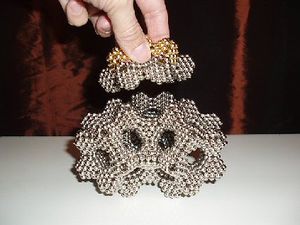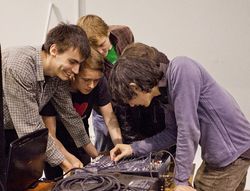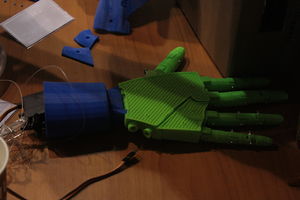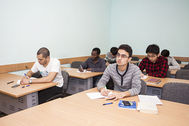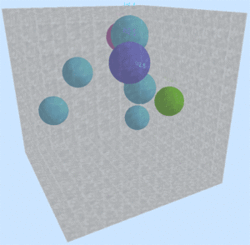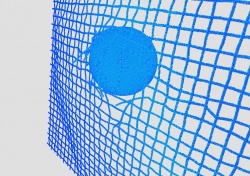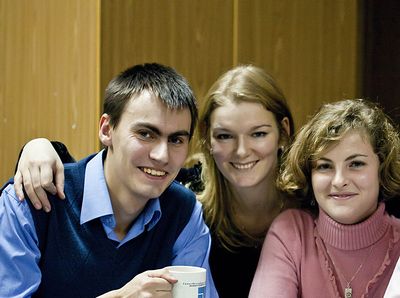Магистерская программа на основе CDIO-подхода "Механика и цифровое производство"
Содержание
Механика и цифровое производство
Выпускающий институт: Институт прикладной математики и механики
Руководитель программы: Антон Мирославович Кривцов, доктор физико-математических наук, Заведующий кафедры "Теоретический механика"
Описание программы
Целью магистратуры “Механика и цифровое производство” является подготовка высококвалифицированных инженерных и научных кад-ров мирового уровня, имеющих как теоретические, так и практические знания, умения и профессиональные навыки в следующих областях: • разработка физических устройств и экспериментальных установок, используя современное оборудование с ЧПУ (CAM); • компьютерное проектирование (CAD/САПР); • проектная работа; • механика дискретных и континуальных систем; • вычислительная механика; • программирование (C++); • компьютерное моделирование (PDM, FEM).
Основной концепцией магистратуры “Механика и цифровое производство” является гармоничное сочетание фундаментальной подготовки в области механики с развитием практических навыков в разработке сложных и наукоемких механических устройств и экспериментальных установок, используя производственные и человеческие ресурсы лаборатории «Фаблаб Политех». Магистратура “Механика и цифровое производство”, направлена на устранение наблюдающегося в научном и инженерном образовании во всем мире противоречия между теорией и практикой. Предлагаемый в магистратуре подход нацелен на усиление практической направленности обучения будущих инженеров и ученых, а также введение системы проектного обучения, вкупе с практической работой в лаборатории. В процессе обучения студенты будут получать практический опыт проектно-конструкторской и экспериментальной деятельности, как в аудиториях, так и на современном оборудовании. Вследствие мультидисциплинародного обучения выпускники магистратуры “Механика и цифровое производство” будут уметь создавать и эксплуатировать новые продукты, процессы и системы, востребованные рынком.
Key advantages
1. The graduated students have a chance to get an interesting and a well-paid job at the research in-stitutes, centres and labs. Also they can work at R&D and engineering departments of oil and gas, automotive, power and engineering, aerospace and other companies.
2. Balanced combination of the theoretical courses in mechanics and mathematics with the practical exercises, workshops and training sessions in IT, simulations and distributed computing.
3. Unique opportunities for international mobility. Possible semester abroad at academic partners of SPbSPU. Double degree options with European universities.
4. The programme offers a unique opportunity for joint study of Russian students with students from other countries, the opportunity to participate together in academic and extracurricular activities of SPbSPU.
5. Support of students individual research project and technical ideas
Programme structure
Duration and format
Training period of 2 years. part-time, contract basis. Double degree program with the Leibniz Universitat Hanover. Are possible short-term (2 months) in travel for students and TUHH LUH, long-term (6 months. - 1 year) - in the LUT
Program content
Compulsory courses, elective courses, MSc thesis. Compulsory lecture courses and a Mas-ter's theses are included into the syllabus of a student. The students have to choose one of the elective courses presented in groups А, В, C, D, E or F from the list below to get 120 ECTS to complete the program.
1 semester (30 credits)
• Computational mechanics
• Foundations of nanomechanics
• Modern problems of mechanics
• IT technologies in mechanics
• Algebra and analysis of tensors
• Integral equations and variations calculations
• Foreign language
2 semester (30 credits)
• Statistical Physics
• History and methodology of mathematics and mechanics
• Waives in solids
• IT technologies in mechanics
• Biomechanics
• Dynamics of discrete medium
• Mechanics of shells
• Nonlinear dynamics processes
• Foreign language
3 semester (30 credits)
• Dynamics of discrete medium
• IT technologies in mechanics
• Personal research project
4 semester (30 credits)
• Semesters thesis/ industrial internship
• MSc thesis preparation
Scientific and Research work
The scientific work includes two research directions: "Mechanics of Discrete Media" and "Mechanics of Continuum Media".
The research of the direction "Mechanics of Discrete Media" proceed in a common laboratory of the Department "Theoretical Mechanics" and Institute of Problems of Mechanical Engineering Russian Academy of Science. Scientists of the laboratory "Discrete Models of Mechanics" work with different fundamental modern problems of mechanics: formulation of fundamental laws of mechanics discrete media, development of laws interparticle interactions, defining properties of discrete media at different scale levels, establishing the relationship between parameters and properties of discrete media. Analytical and computer methods admit to describe thermomechanical properties of crystallines, amorphous and nanostructured materials and shock wave processes in solids; dynamics of granular media; destruction and structural phase transitions, chemical processes; astrophysical processes; sociological processes; biological evolutionary processes, etc.
The second direction "Mechanics of Continuum Media" connected with a construction new models of continuum media for a description various physical processes and phenomenons. Analytical and computer models by the department staff, used to describe a thermal conductivity, internal friction, electromagnetic phenomena, interaction of electromagnetic fields with matter, phase transformations, chemical reactions, destruction, deformation of thin-walled structures and nano-objects. In particular, there are some research, which describe new models of particles having a complex structure and internal degrees of freedom; describe thermomechanical processes based on models of thermal conductivity and thermoelasticity hyperbolic; develop fundamentals and methods of experimental mechanics of thins, model building solid-state transitions and transitions from liquid to gas; describe of the influence of the form of the stress- strain state and material parameters on the kinetics of formation of a new phase, the develop of interfaces and fronts of chemical reactions in deformable materials.
Also the Department conduct applied investigations in lead russian research organizations: an ensuring the reliability of nuclear power plants; inertial navigation and a sports biomechanics, modeling of oil and gas production, modeling of coke formation in the path of liquid rocket engines, thermal, electrical and strength analysis of aluminum electrolytic cells, development of methodologies for calculating thin-walled structures, dynamics of rapidly systems, high-speed shooting of phenomena and processes, etc.
Teaching methods
World famous professors are invited to give the sort and long-time courses. Individual training plan based on scientific interests of the student – a choice of a case study, working in cross-cultural teams, experts workshops, visits on enterprises and internships at scientific centers in St. Petersburg. Special recourses of the SPbSPU supercomputing center a digital fabrication laboratory FabLabSPbSPU will be open for stu-dents. Every student enrolled in MSc Advanced Dynamics of Discrete and continuum System is offered to study semester abroad on European universities.
Program Staff
Prof. Anton M. Krivtsov, Doctor of Physical and Mathematical Sciences, Head of the Department "Theoretical Mechanics"
Prof. Dmitry A. Indeitsev, Director of the Institute for Problems of Mechanical Engineering Russian Academy of Science
Prof. Alexey V. Porubov,
Prof. Elena A. Ivanova (Иванова Елена)
Prof. Udo Nakenhorst,
Dr. Wenzhe Shan,
Prof. Antonio Castellanos,
Prof. Sergei Antoniuk,
Prof. Matti Alatalo,
Prof. Gennady Mishuris.
Laboratories and equipment
1. Laboratory of the Department "Theoretical Mechanics": supercomputers, 3D-model of the crystal structures, models of machines and mechanisms
2. FabLabPolytech: milling machines for metal cutting machine for wood, 3D-printers, laser cutter and engraver, cutting plotter, laser machine, bending machine, bandsaw
3. Studio "Photomechanics": equipment for high-speed video and photomicrography, photographic equipment,
Key facts
Admission requirements: candidates are required to hold a Bachelor, Specialist or Master degree in related subject area, all applicants must demonstrate English language proficiency at B+ level.
Admission tests: examination in the field of mechanics and interview in English language with programme coordinator (option - via Skype).
Admission procedure: written on-line application. Application deadline – July, 15.
Semester and date begin: winter semester – 1st of September
Length of programme: 2 years
Degrees awarded: master of science (MSc)
Tuition fees: tuition fees for Russian students - 175 000 RUR for 1 year.
Contact details
St. Petersburg State Polytechnical University
Dr. Igor Berinskii, Programme Coordinator
Polytechnicheskaya, 29, University building, 195251 St. Petersburg
Telephone: +7(812)2909872
E-mail: iberinsk@gmail.com
